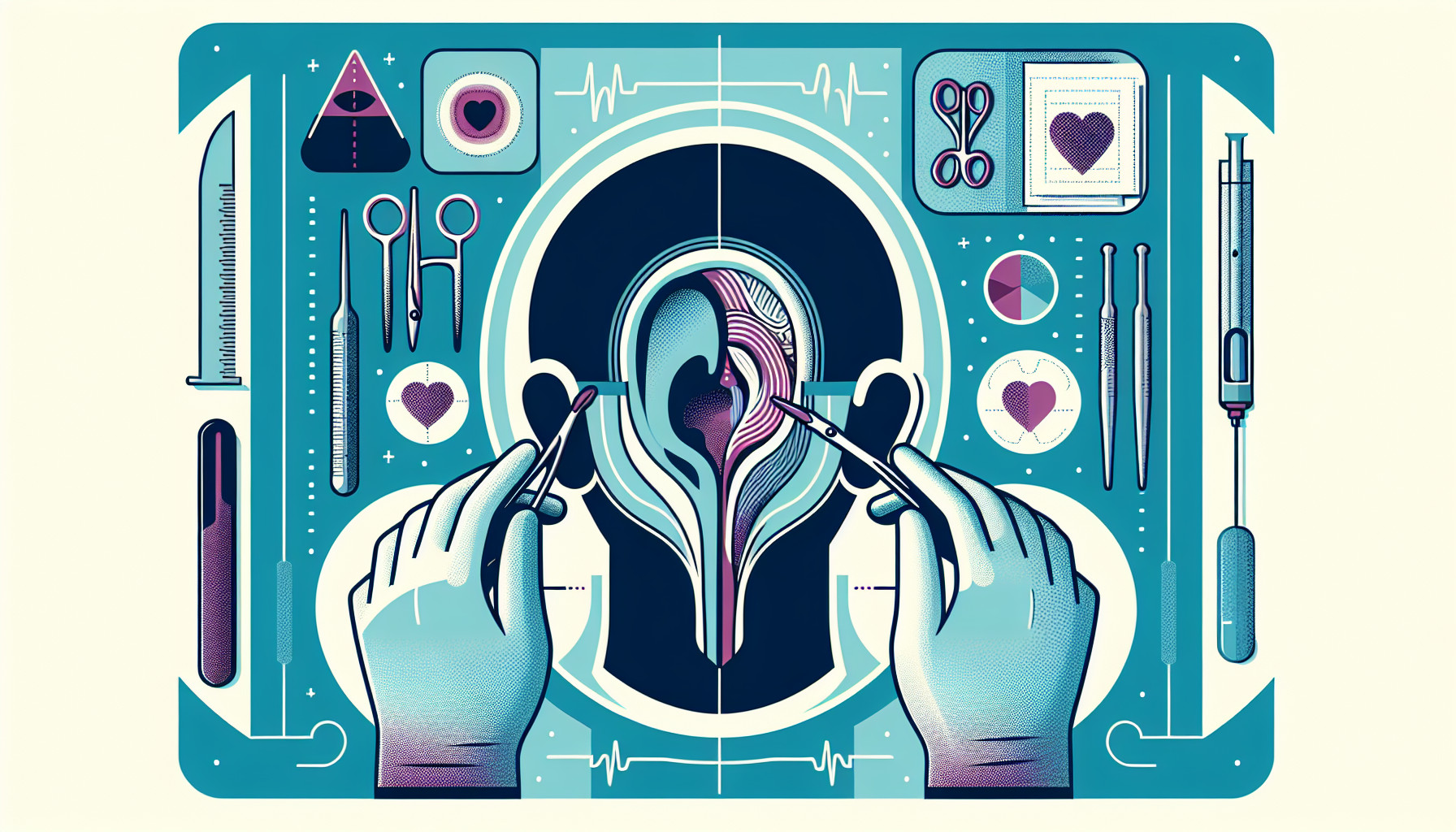Our Summary
This research paper is about the Eustachian tube, which is a small passage in your ear that helps regulate the pressure in your ear. Sometimes, this tube can get blocked or not work properly, leading to Eustachian tube dysfunction. This can cause various ear problems such as ear infections or otitis media, which is an infection or inflammation of the middle ear.
To solve this problem, the study looks into Eustachian tube dilation or Eustachian tuboplasty, which are procedures that aim to widen the tube to help it function better. The paper delves into these procedures to understand their effectiveness and potential for treating ear problems caused by Eustachian tube dysfunction.
FAQs
- What is Eustachian tube dilation?
- What conditions can Eustachian tuboplasty help treat?
- What is otitis media and how is it related to Eustachian tube dysfunction?
Doctor’s Tip
After ear tube surgery, it is important to keep water out of your ears to prevent infection. You should use ear plugs or a cotton ball coated in petroleum jelly when showering or swimming. This will help ensure proper healing and reduce the risk of complications. Additionally, follow your doctor’s post-operative care instructions closely to promote a smooth recovery process.
Suitable For
Ear tube surgery, also known as myringotomy, is typically recommended for patients with the following conditions:
Chronic ear infections: Patients who experience frequent ear infections, especially those that do not respond well to antibiotics, may benefit from ear tube surgery. The tubes help to ventilate the middle ear and prevent fluid buildup, reducing the risk of infections.
Eustachian tube dysfunction: Patients with Eustachian tube dysfunction, which can cause pain, pressure, and hearing loss, may benefit from ear tube surgery. The tubes can help equalize pressure in the middle ear and improve Eustachian tube function.
Otitis media: Patients with chronic or recurrent otitis media, an inflammation of the middle ear, may benefit from ear tube surgery. The tubes can help to drain fluid from the middle ear and reduce the risk of infection.
Hearing loss: Patients with hearing loss due to chronic ear infections or fluid buildup in the middle ear may benefit from ear tube surgery. The tubes can help to improve ventilation and drainage, leading to improved hearing.
Overall, ear tube surgery is typically recommended for patients who have chronic ear infections, Eustachian tube dysfunction, otitis media, or hearing loss that has not improved with other treatments. It is important to consult with an otolaryngologist (ear, nose, and throat specialist) to determine if ear tube surgery is the right treatment option for your specific condition.
Timeline
Before ear tube surgery:
- Patient experiences frequent ear infections or fluid buildup in the middle ear
- Patient may have hearing loss or ear pain
- Doctor recommends ear tube surgery as a solution
After ear tube surgery:
- Patient undergoes a quick and relatively painless procedure to insert ear tubes
- Patient may experience some mild discomfort or drainage from the ear after surgery
- Patient’s symptoms of ear infections or fluid buildup improve significantly
- Patient may need to follow up with the doctor for routine check-ups and possible tube removal in the future if necessary.
What to Ask Your Doctor
- What are the benefits of ear tube surgery for my condition?
- What are the potential risks or complications associated with ear tube surgery?
- How long will the ear tubes typically stay in place?
- Will I need any follow-up appointments or care after the surgery?
- What can I expect in terms of recovery time and any restrictions on activities?
- How will ear tube surgery affect my hearing and overall ear health?
- Are there any alternative treatments or options for my condition?
- Will I need to take any medications before or after the surgery?
- How experienced are you in performing ear tube surgery?
- Can you provide me with any information or resources to help me prepare for the surgery and recovery process?
Reference
Authors: Lafferty DJ, McKinnon BJ. Journal: Ear Nose Throat J. 2021 Dec;100(10):696-697. doi: 10.1177/0145561320925208. Epub 2020 May 26. PMID: 32453641
